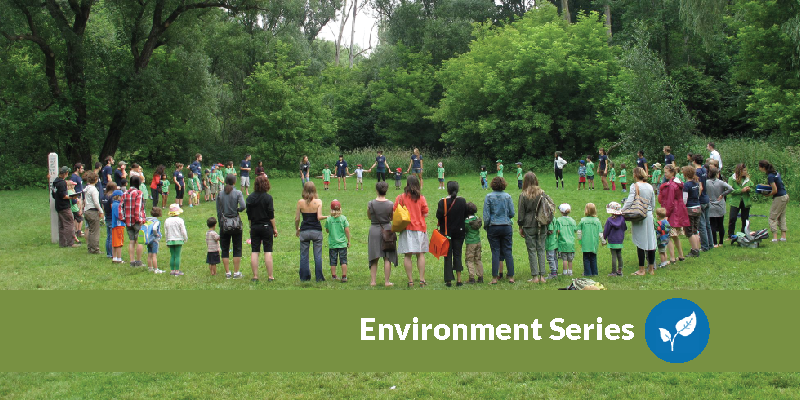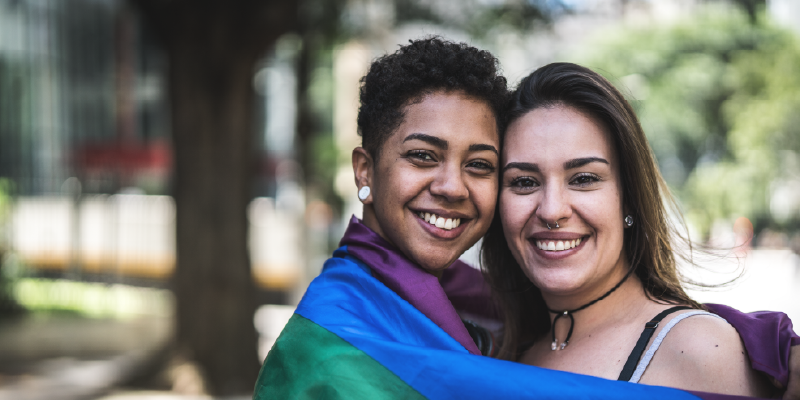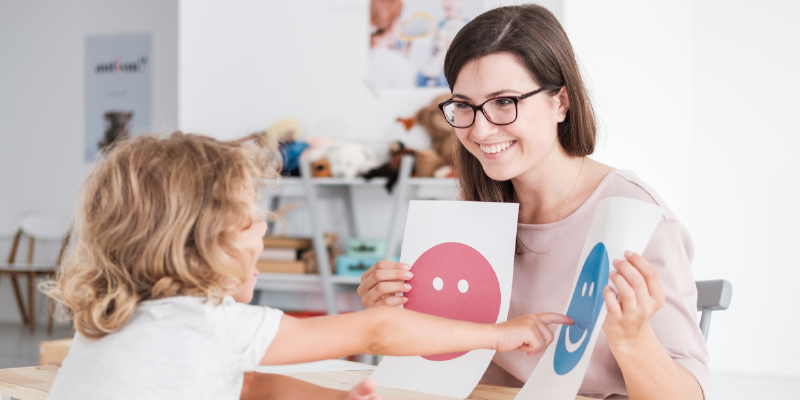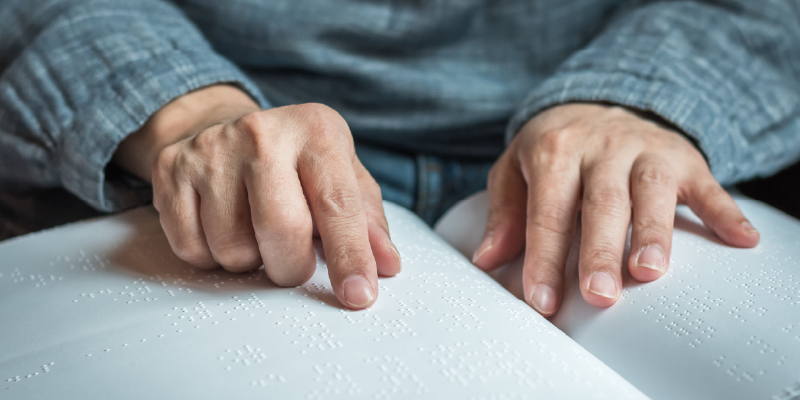This post was provided by Jay Haney, Communications Coordinator at the p.i.n.e. project, as part of our environment series.
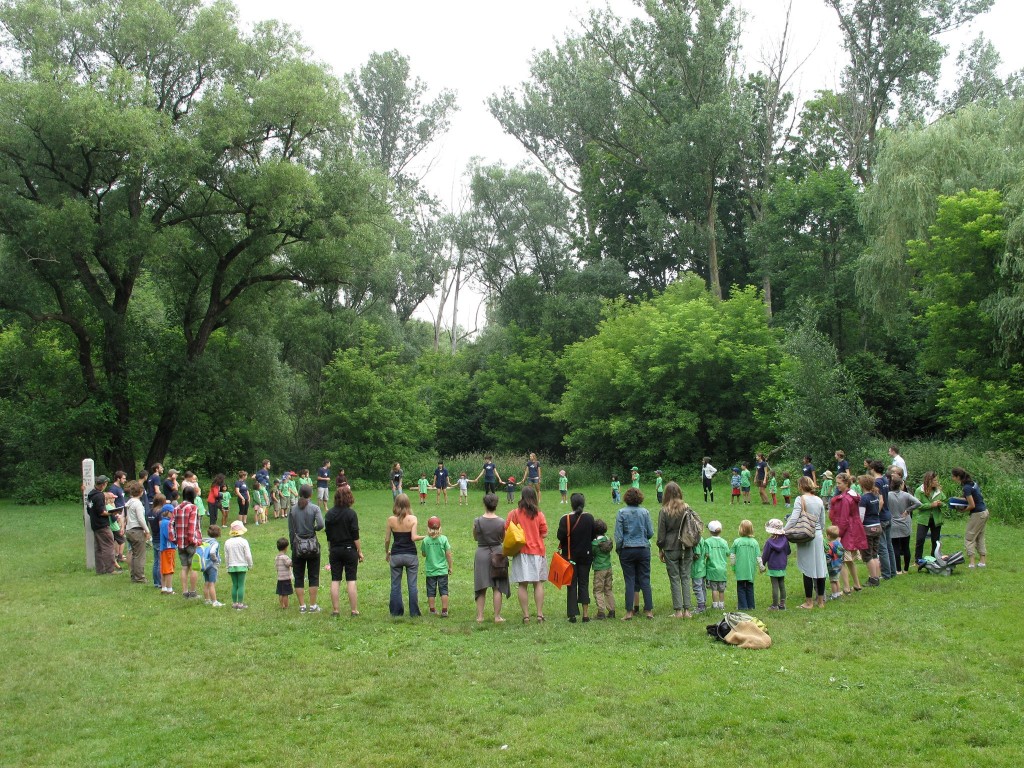
With advances in information, communications and entertainment technology, children spend an average of approximately seven hours per day in front of a screen[1], and because of this, it is now recommended parents limit the amount of screen time children have each day. Recently reported by ParticipACTION, active outdoor play can help remedy the physical and mental health risks associated with too much time spent indoors by increasing healthy behaviours[2] – and this of course is on top of a number of environmental issues at the forefront of media and politics unlike ever before.
When looking at issues such as climate change, pollution, food waste and GMOs, we can see how our consumer-based society and planned obsolescence are central to them. Research has shown that children who spend more time in nature are more likely to grow into adults who may chose a career in an environmental field and have a higher level of environmental concern[3], and because of this, the p.i.n.e project is determined to bring people to nature.
Practical Nature Connection
The p.i.n.e. project is dedicated to inspiring healthy, lifelong connections between people and nature through outdoor learning and play, as well as building healthy communities deeply connected to the natural environment. Using music, drama, storytelling, naturalist studies, stewardship, survival skills, outdoor adventures, intergenerational learning, games, and play, we weave a culture of natural connections all empowered by our mantra: be more, need less. We believe our strategy has the ability to ‘feed two birds with one seed’ by responding to our culture’s need for more active outdoor time while sparking a higher level of environmental concern in children who will grow to rule the future.
At p.i.n.e. we practice: respect for oneself, each other, and the environment; gratitude; awareness; life-long learning; and resilience throughout all of our programs. We run nature connection programs for children, teens and adults where our participants are led on a nature connection journey while gaining practical naturalist and wilderness survival skills to last a lifetime. Skills include making fire with friction, identifying edible and medicinal plants, bird language, tracking, building natural shelters, and basket weaving just to name a few. Our community includes thousands of participants, family members and supporters across Canada and the U.S. who have developed a strong social bond as our participants learn and grow together.
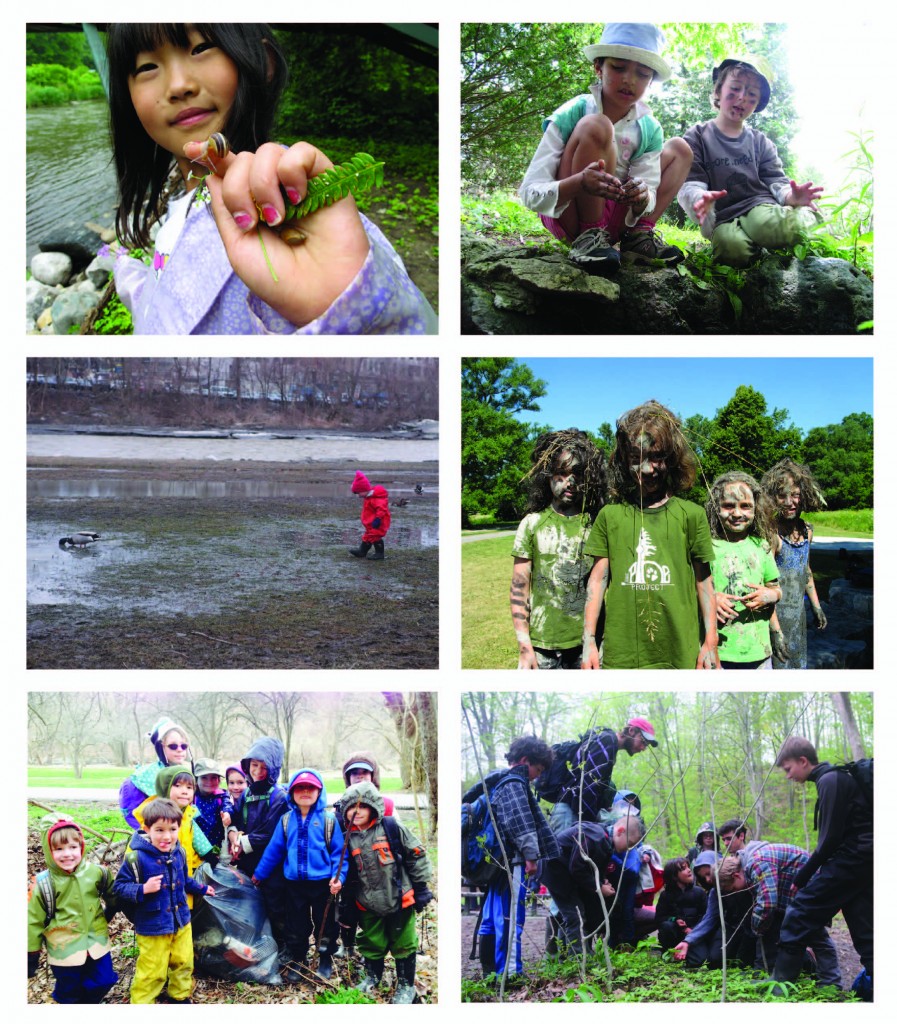
Our Annual Sit-a-thon Fundraiser
The city has a fast-paced lifestyle, the average family is busier than ever, and schedules are packed with activities. Stress is now a normal part of many lives.
As stress levels rise, there has also been a rise in ‘slow living,’ to counterbalance this fast-paced lifestyle. As a result of the opening of a McDonald’s in Rome back in 1986, the slow movement was sparked as a reaction to fast food, and since then, organizations such as Slow Food International have been established to address quality and inequality issues that have arisen globally as a result of the demands of fast living in first-world countries.
‘Slow living’ can give us the chance to notice and appreciate the small things while providing us with the opportunity to relax and reconnect. Think about how many more things you might notice on a walk, as opposed to how many things you might stop and notice while driving somewhere in a hurry. Recent studies have even shown time spent in nature is good for our mental health.[4]
A sit-spot is an invitation to try living slowly in nature, even for just an hour or two. It deepens the connection with nature and oneself by providing a different perspective on the passing of time and reminds everyone that people are a part of nature. It invites people to turn off phones, put a hold on emails and take a break from fast living in the city.
On September 26 we will be hosting our annual Sit-a-thon with the majority of funds raised directed to both our bursary program and Best Day Ever Fund, while a smaller portion directed towards our staff training initiative. To join our 2015 Sit-a-thon, visit our CanadaHelps Peer-to-peer page.
Be More, Need Less
To learn more about the p.i.n.e. project, please visit their charity profile page >>
[1] American Academy of Pediatrics: https://www.aap.org/en-us/advocacy-and-policy/aap-health-initiatives/pages/media-and-children.aspx
[2] ParticipACTION Position Statement on Active Outdoor Play: http://www.participaction.com/wp-content/uploads/2015/03/Position-Statement-on-Active-Outdoor-Play-EN-FINAL.pdf
[3]Chawla L. Research methods to investigate significant life experiences: Review and recommendations. Environmental Education Research. 2006a;12:359–374.
[4]Prescription for health and happiness: a daily dose of nature. http://www.davidsuzuki.org/blogs/science-matters/2012/05/prescription-for-health-and-happiness-a-daily-dose-of-nature/
Updated on November 1, 2024
Donate Now

